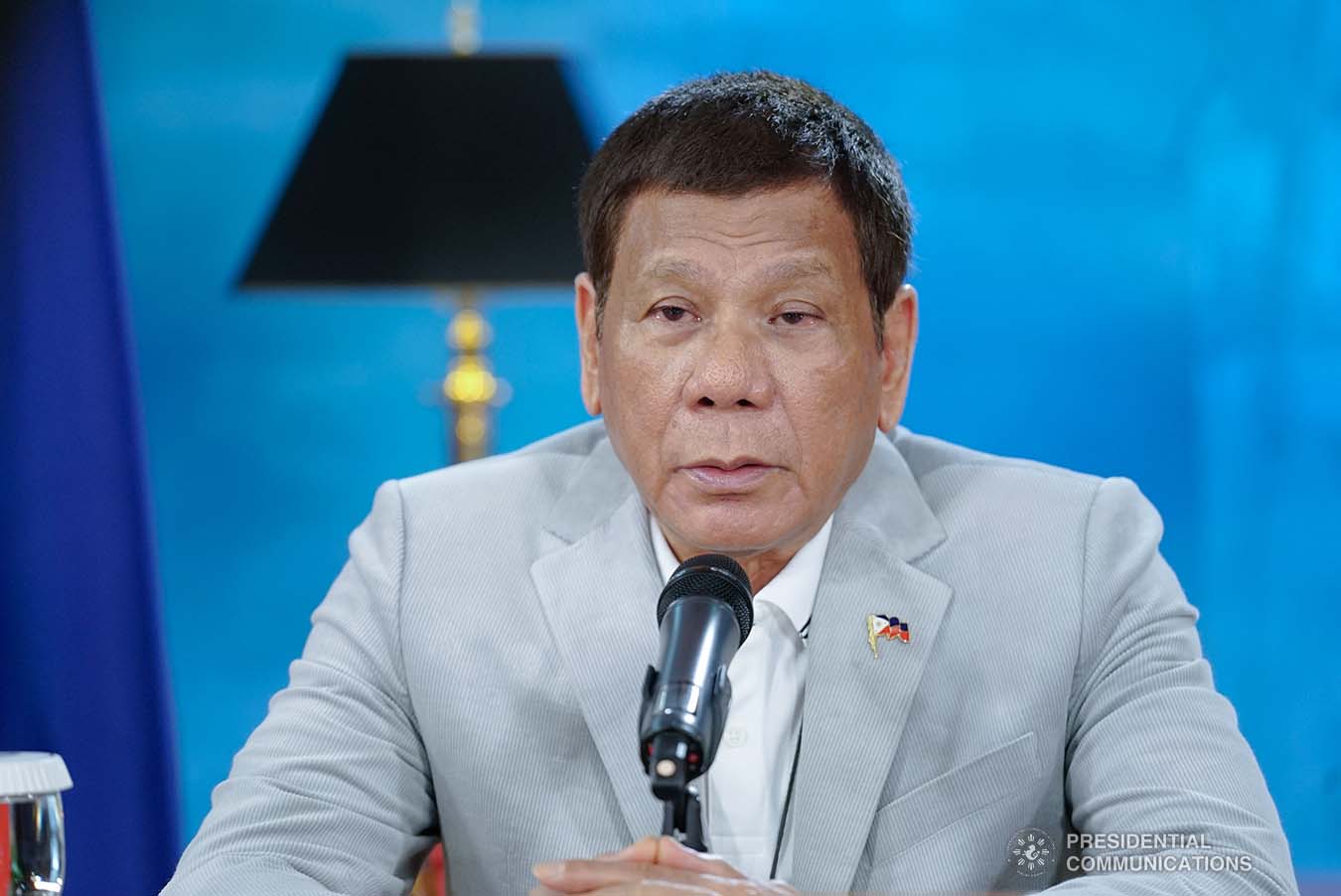News
PRRD studying US push for longer suspension of VFA abrogation

President Rodrigo Roa Duterte delivers his remarks during the virtual plenary session of the 37th Association of Southeast Asian Nations (ASEAN Summit) and Related Summits hosted by the Socialist Republic of Vietnam at the Malacañang Golf (Malago) Clubhouse, Malacañang Park in Manila on November 12, 2020. KING RODRIGUEZ/ PRESIDENTIAL PHOTO
MANILA – President Rodrigo Duterte is studying the request of US President Donald Trump’s National Security Adviser Robert O’Brien for a longer suspension of the Visiting Forces Agreement (VFA) abrogation, Malacañang said on Tuesday.
Presidential Spokesperson Harry Roque made this remark after O’Brien, in an interview with reporters on November 23, said he was pushing for a suspension of the VFA termination that would last for a year or longer to allow further negotiations for a more acceptable security arrangement.
“Let’s just say that the President has taken note of the request of the US authorities and he will decide as chief architect of foreign policy,” Roque said in a Palace press briefing.
On November 11, Foreign Affairs Secretary Teodoro Locsin Jr. announced that the government has extended the suspension of the VFA abrogation for another six months.
Locsin said this would allow the Philippines and the United States “to find a more enhanced, mutually beneficial, mutually agreeable, and more effective and lasting arrangement on how to move forward in our mutual defense”.
While O’Brien welcomed the suspension of the VFA abrogation for a second time, he said it would be “better” if it would be extended for at least a year or longer.
The VFA, a military pact signed between the Philippines and the US in 1998, allows American troops who are participating in joint military exercises to visit Manila without a passport and visa.
In February, Duterte scrapped the VFA over its alleged inequities in its treaty provisions and the US’s alleged assault on the country’s sovereignty and disrespect for its judicial system.
He later decided to suspend the planned revocation of the military pact with Washington DC last June.
Roque, meanwhile, refused to comment on the accusation made by the Chinese government that O’Brien was allegedly attempting to sow discord between China and the Philippines after slamming Beijing’s encroachment of territories in the South China Sea that are under Manila’s Exclusive Economic Zone.
“I cannot speak either for the National Security Adviser of the US or the Spokesperson of China. I can only speak for the President. And the President has said that there will be increased tensions among superpowers in the region. We do not want to take part in that drive for hegemony,” he said.
He also maintained that the Philippines will pursue a “peaceful and diplomatic” approach to resolve its long-standing sea row with China.
“We will assert our national interest and we would want a peaceful resolution to the West Philippine Sea dispute,” he added.
On July 12, 2016, the Philippines won its arbitration case filed against China when the Hague-based Permanent Court of Arbitration (PCA) ruled that Beijing has “no legal basis” to claim historic rights over almost the entire South China Sea.





















